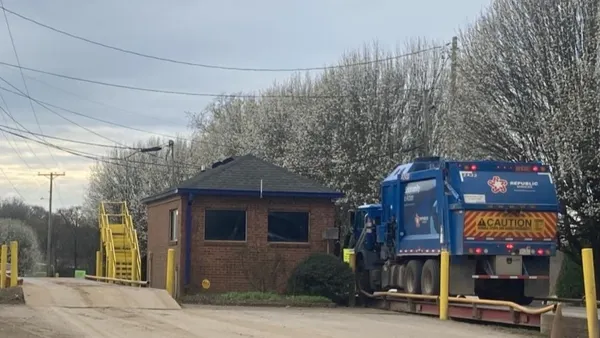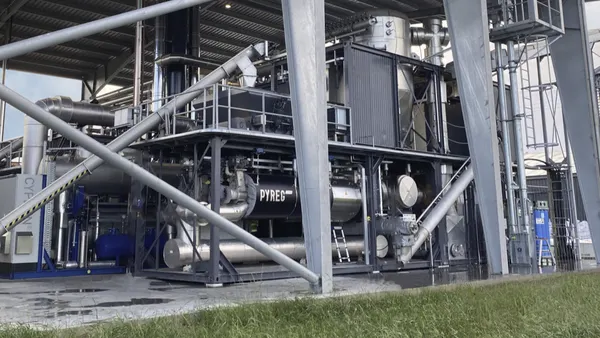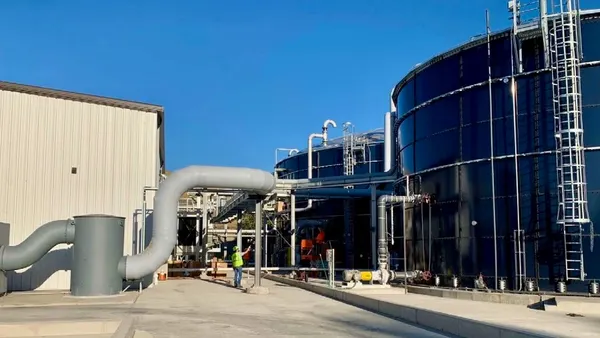Dive Brief:
- With roughly 72% of the municipal waste stream being made up of organic waste, it has become a debate among industry leaders whether food waste should or should not be banned from landfills.
- While some doubt that a ban would be practical, supporters of food waste diversion say it keeps methane-producing, usable material out of landfills while saving scarce landfill space for other waste. Food waste can instead be recycled and used for biofuel for waste-to-energy plants, as well as for creating compost and fertilizer.
- Devin Moose, an engineer and the director of solid waste services for Environmental Solutions, critiques the idea of food bans, stating that a ban could be both costly and ineffective. “In the case of food waste, it poses no threat to the environment if disposed of in a properly operated Subtitle D landfill,” Moose said.
Dive Insight:
Food waste is the largest category of household waste, with more than 36 million tons being disposed of each year in the U.S., according to Forbes. With such a mass amount of waste, the debate of what to do with the food waste a challenge industry-wide.
"If it will be more expensive, is [a food waste ban] something [people] are willing to pay for? What are the cost impacts by losing this volume at the landfill?" Moose asks. “This varies from community to community and therefore a national or statewide ban is inappropriate. In my experience, food waste diversions are more expensive.”
While Moose also states that greenhouse gas emissions from food waste are hard to determine at a state or national level, the effects of methane emissions from food waste still linger. Some say that disposing of food waste by way of the kitchen sink garbage disposal could be a simple solution for the problem.








